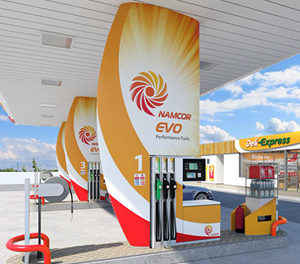
Why has Africa failed to industrialize?
By Masimba Tafirenyika
Africa Renewal
Industrialization has been a campaign promise across the African continent, with its acknowledged ability to bring prosperity, new jobs and better incomes for all. Yet the continent is less industrialized today than it was four decades ago.
In fact, the contribution of Africa’s manufacturing sector to the continent’s gross domestic product actually declined from 12% in 1980 to 11% in 2013, however it has remained stagnant over the past few years, according to the UN Economic Commission for Africa (ECA).
The Economist Intelligence Unit, a British business research group, reckons that Africa accounted for more than 3% of global manufacturing output in the 1970s, but this percentage has since halved. It warns that Africa’s manufacturing industry is likely to remain small throughout the remainder of this decade.
Had African leaders heeded advice from experts and pumped profits from the commodity boom into stimulating manufacturing companies, the results could have been different.
So what are the options for Africa over the next few years? This was the question policy makers and economic experts wrestled with in Addis Ababa, Ethiopia, early this year.
Industrialize or decline
During the discussions that ensued, experts agreed that one of the main reasons for Africa’s slow industrialization is that its leaders have failed to pursue bold economic policies out of fear of antagonizing donors. As it were, the strongest criticism of this policy vacuum came not from the debate in Addis Ababa, but from the op-ed pages of The Financial Times, a British daily.
“Africa stands on the cusp of a lost opportunity because its leaders and those who assess its progress in London, Paris and Washington are wrongly fixated on the rise and fall of GDP and foreign investment flows, mostly into resource extraction industries and modern shopping malls,” said Kingsley Moghalu, a former deputy governor of the Central Bank of Nigeria.
Yet The Economist sees things differently. In its analysis of why Africa has failed to industrialize, it observes that while many countries de-industrialize as they grow richer, “many African countries are taking this action while they are still poor, partly because technology is reducing the demand for low-skilled workers.” Also weak infrastructure, lack of electricity, poor roads and congested ports drives up the cost of moving raw materials and shipping out finished goods
The good, the bad and the smart
Many experts have called on Africa to practice the “so-called sophisticated or smart protectionism,” that is, to impose temporary tariffs to shield budding industries from the negative effects of cheap imports as part of a strategy to industrialize.
Mr. Moghalu is one of many African policy makers who support smart protectionism, making the case that it’s not only necessary but can be pursued using the rules set by the World Trade Organization (WTO). To prove the point that rich nations are indeed practising protectionism, the WTO reported in June 2016 that there is a rapid increase in trade restrictive or protectionist measures by the world’s leading economies that make up the G20 group.
Between mid-October 2015 and mid-May 2016, the report says, G20 economies had slapped 145 new trade-restrictive measures at an average rate of 21 new measures per month, “a significant increase compared to the previous reporting period at 17 per month.”











































